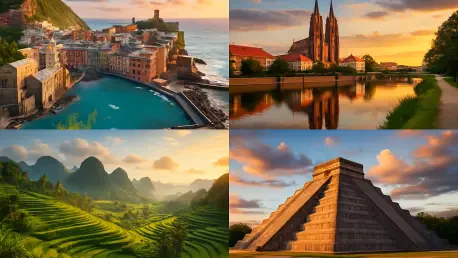
In a surprising turn of events, Indianapolis has emerged as a standout on Conde Nast’s list of top U.S. destinations for 2026, capturing the attention of travel enthusiasts nationwide with its remarkable transformation. Once overlooked by many as merely an industrial hub, the Circle City has

Imagine stepping into the untouched wilderness of Florida, where the rustle of leaves and the distant call of a rare bird beckon explorers into a world of natural wonder, offering an unparalleled chance to connect with the environment through birdwatching. This vibrant state, with its sprawling

In an era where tourism is a cornerstone of global economies, Spain is pioneering a transformative approach to managing its vast network of destinations through the Intelligent Destination Platform (PID), an ambitious project spearheaded by the Secretary of State for Tourism. With a significant

Imagine a world where the beauty of iconic destinations like the Acropolis or the beaches of Santorini remains unspoiled for generations, despite millions of visitors each year, and where global and local tourism leaders champion sustainability as the cornerstone of the industry’s future. At a

In an era where iconic vacation spots like Paris, Bali, and Santorini have long dominated travel itineraries, a profound transformation is unfolding as 2026 approaches, with travelers increasingly turning their backs on overcrowded, overpriced destinations. They are seeking hidden treasures that

The European aviation sector, a linchpin of connectivity and economic activity, finds itself at the center of a heated debate over its true value to regional prosperity. With millions of passengers traversing the continent annually and contributing billions to local economies, a recent report